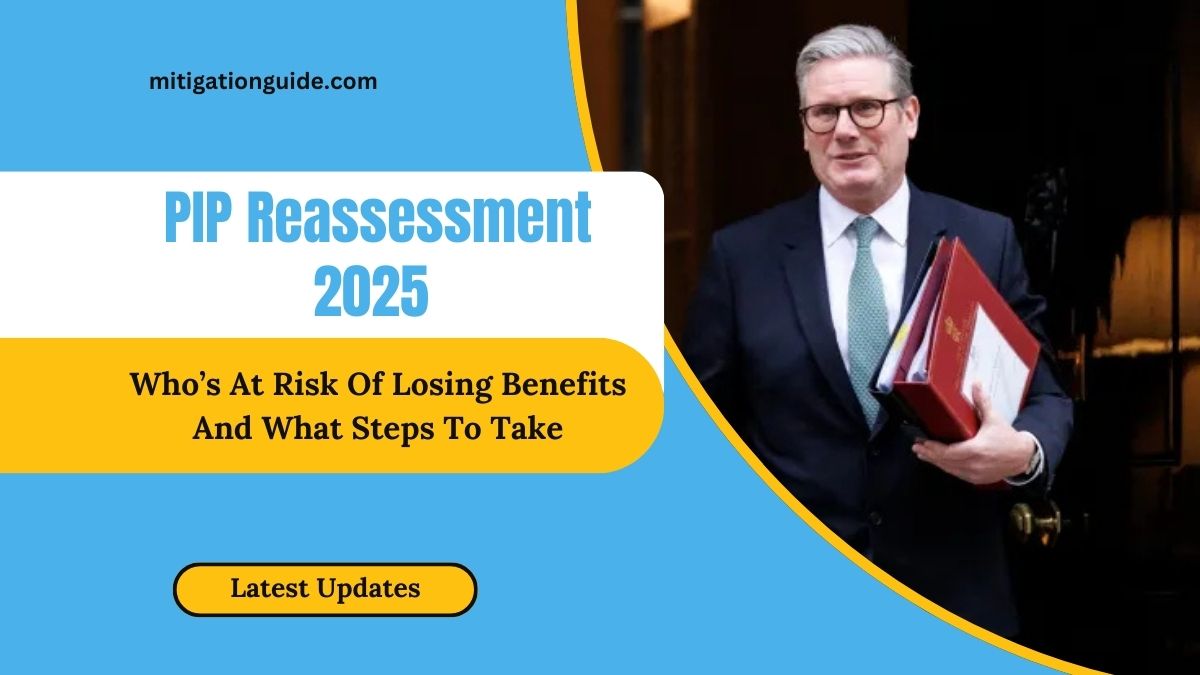The UK’s Personal Independence Payment (PIP) program is undergoing major changes in 2025, and millions of claimants could be affected.
As part of the government’s updated disability benefit review, a new reassessment process has been introduced, potentially putting many at risk of losing their current benefits.
If you or a loved one receives PIP, understanding the new rules and how to respond is more important than ever.
What’s Changing in PIP 2025?
From May 2025, PIP assessments are shifting to a more stringent model. One of the key changes involves how daily living scores are calculated. Previously, claimants could qualify for the benefit by scoring moderate points across multiple activities.
Under the new rules, a claimant must now score at least 4 points in one daily living activity to qualify for the daily living component of PIP.
This means people whose disabilities affect them in various minor or moderate ways might fall short of eligibility, even though their overall functionality is significantly impacted.
The mobility component of PIP will remain unchanged for now, but it may also be reviewed later depending on policy decisions.
Who Is Most at Risk of Losing PIP?
Based on the reassessment guidelines, certain groups are more vulnerable to losing their PIP benefits—especially those with conditions that do not severely impact one activity but affect multiple aspects of daily life moderately. These include physical, mental, and neurological conditions.
Here’s a breakdown of groups most at risk:
| Condition | Estimated Risk Level |
|---|---|
| Back pain and musculoskeletal issues | Very High |
| Arthritis and joint conditions | Very High |
| Chronic pain syndrome | High |
| Cardiovascular disease | High |
| Anxiety and depression | Moderate to High |
| Epilepsy | Moderate |
| Respiratory conditions (e.g., asthma) | Moderate |
| Learning disabilities | Low |
| Autism spectrum disorders | Low |
Many people in these categories currently rely on multiple lower-point scores across a range of daily tasks, but the new “4-point rule” may disqualify them from receiving continued support under the daily living component.
What You Could Lose Financially
For those who no longer meet the revised PIP criteria, the financial loss can be significant. Current figures suggest that affected individuals may lose between £4,200 and £6,300 annually. This is especially concerning for those who rely on these payments as a core part of their income and support.
In total, it’s expected that over a million existing claimants could face benefit reductions or cancellations during the reassessment period. These changes are part of a wider government effort to cut long-term disability benefit expenditures.
Steps You Should Take Immediately
If you’re receiving PIP, it’s crucial to act early. Here are the steps to take if you are at risk of losing your benefits:
1. Review Your PIP Award
Start by reviewing your most recent assessment letter. Understand how your points were awarded and whether you scored across several categories or had a higher score in just one.
2. Gather Supporting Medical Evidence
You’ll need detailed, up-to-date medical reports. Ask your GP or specialist to write a letter clearly outlining how your condition affects specific daily activities—especially those with the highest impact.
3. Update Centrelink or DWP Promptly
If your health condition has worsened or changed, ensure your file reflects your current limitations. Late updates can delay reassessments or impact appeal timelines.
4. Request a Mandatory Reconsideration
If your benefit is reduced or stopped, ask for a Mandatory Reconsideration immediately. This is the first step in disputing a decision and must be requested within 30 days of receiving your outcome letter.
5. File an Appeal
If the reconsideration is unsuccessful, take your case to a benefits tribunal. Success rates for appeals are often favorable if proper medical and functional evidence is presented.
The PIP reassessment process in 2025 marks a critical turning point for disability support in the UK. While it aims to simplify and target support more effectively, it also places many vulnerable individuals at risk of losing essential benefits.
If you’re currently receiving PIP or plan to apply, it’s vital to stay informed, prepare your evidence, and act quickly if you’re affected by changes.
Knowing your rights and being proactive could be the key to protecting your support and financial stability.
FAQs
Will everyone receiving PIP be reassessed in 2025?
Not all at once. Reassessments will begin with new applicants in May 2025 and gradually include existing claimants during their regular review cycle.
Can I still get the mobility component if I lose the daily living part?
Yes. The mobility component is assessed separately and remains unchanged as of now. You may still qualify for that portion.
What if I don’t meet the new criteria but my condition worsens later?
You can reapply or request a reassessment if your condition changes or worsens in the future. Keep all medical documentation updated.




